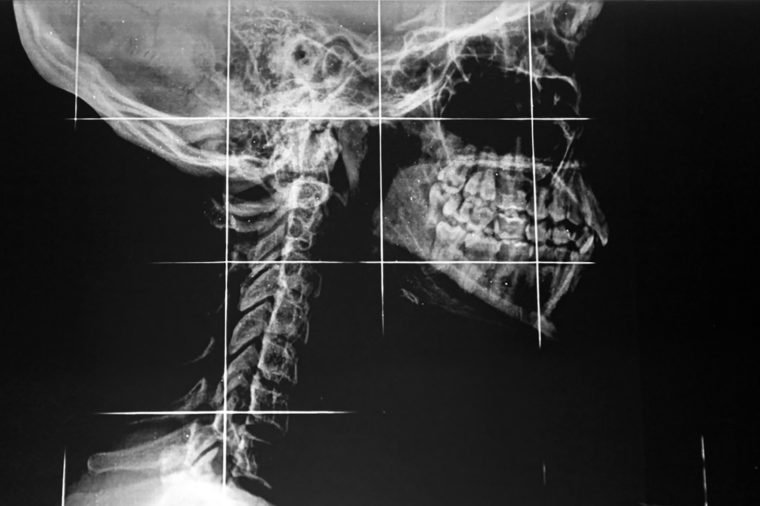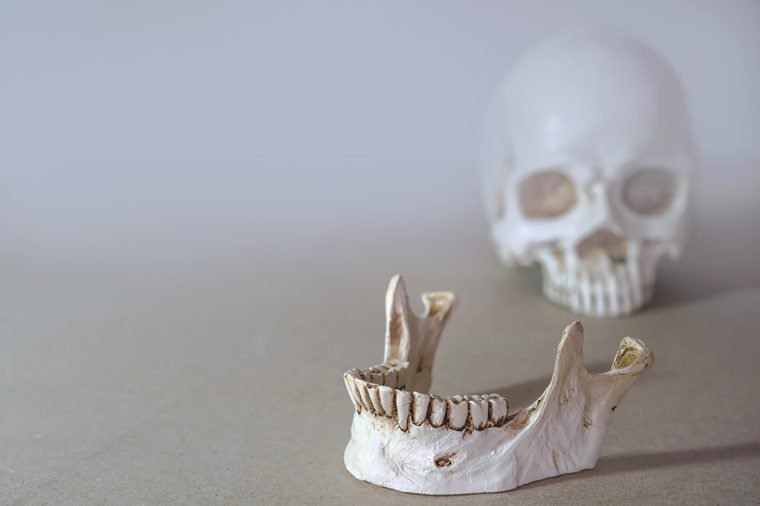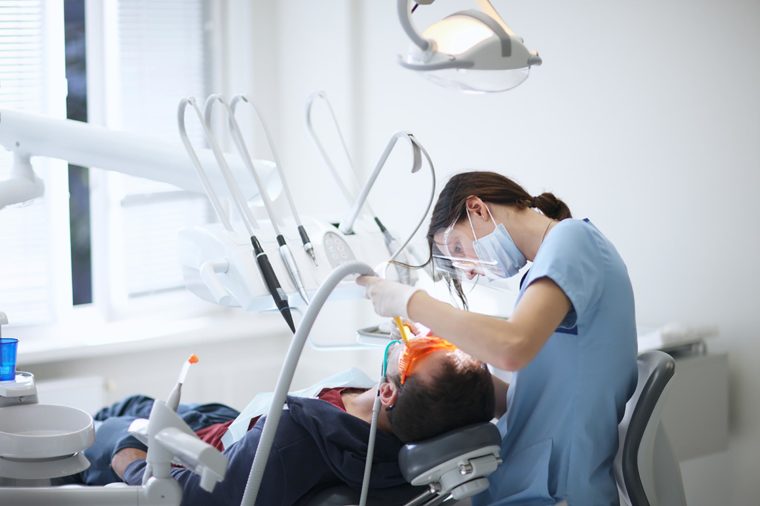Conditions
If you wake up with a locked jaw or feel pain when you chew or yawn, read on to understand why—and how to make it stop.
Jaw pain causes
These are things your dentist wishes you knew, and one of them is that jaw pain can be caused by a variety of things, from sinus pressure to cavity-related nerves to temporomandibular joint dysfunction (TMJ). “The jaw has connections that can be triggered through any mouth activity, like chewing, sucking, or brushing,” says Jake Bateman, DDS, who practices dentistry in Kingsport, TN. “Misalignment of the jaw can also contribute to significant pain.”
For any pain that lasts more than a few hours, or that happens on a recurring basis, seek medical attention. There are many treatments that can help with jaw pain, most of them involving dental care. The first step should be to see a dentist to find out if the pain is being triggered by an offset jaw, a bite that needs correcting, or another dental problem such as a cavity, other decay, or mouth trauma. A dentist can also determine if the pain is coming from a bone issue, a nerve issue, or whether there is something wrong with the tissue surrounding the jaw. These are the pain signals you should never ignore.
TMD
Temporomandibular joint disorder, abbreviated as TMD (also known as TMJ), affects the joints that connect the jawbone to the skull. It is one of the common jaw pain causes that is characterized by pain and restricted movement. It is not life-threatening, but its symptoms can significantly affect the quality of life. Typical indications of TMD are pain and tenderness in the jaw joint area, the neck, the shoulders, the face, and the ear. But symptoms go beyond pain. “A patient can also experience locked jaw, hear a cracking or clicking sound when the mouth is opened or closed, and have an uncomfortable bite and inflamed side of the face,” explains dentist Danica Lacson of Hawaii Family Dental. A physical exam will allow your dentist to diagnose TMD and determine its probable cause. Traditional treatments for TMD include medications, a night guard, and dental fixes to correct bite problems and balance biting surfaces, according to Lacson. Patients can also try home remedies, including over-the-counter medications, heat or cold packs, and relaxation therapy to manage the pain. Here are more home remedies that are proven to work.
Teeth grinding
Teeth grinding, which people may do when they’re awake but do more often when asleep, can damage the teeth and lead to jaw pain. Teeth grinding occurs due to a combination of physical, psychological, and genetic factors, according to Dr. Lacson. Other possible triggers include stress or anxiety, certain diseases such as Parkinson’s disease, as a side effect of medications, misalignment of the lower and upper teeth, a habit of focusing intently, and being hyperactive and aggressive. Severe cases can damage the teeth, wear down the enamel and expose the dentin, causing tooth sensitivity, headaches, and jaw disorders. “Patients can use splints or mouth guards to separate the teeth. If stress or anxiety causes the grinding, therapy and relaxation strategies like meditation may help,” Dr. Lacson says.



